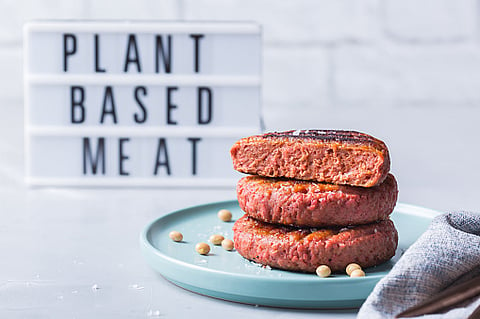Plant-based dietary alternatives to animal products are better for the environment and human health, according to a study.
The study, published in the journal Future Foods, argued that because these foods are 'specifically formulated to replicate the taste, texture, and overall eating experience of animal products, they are a much more effective way of reducing demand for meat and dairy than simply encouraging people to cook vegetarian whole foods.
The study, conducted by psychologists at the University of Bath in the UK, concluded that plant-based meat and dairy alternatives 'offer a healthier and more environmentally sustainable solution which takes into account consumer preferences and behavior.'
"Increasingly we're seeing how plant-based products can shift demand away from animal products by appealing to three essential elements consumers want: taste, price, and convenience," said Dr. Chris Bryant from the university.
The team reviewed 43 studies on the health and environmental impacts of plant-based foods, as well as consumer attitudes. One study found that almost 90 percent of consumers who ate plant-based meat and dairy were meat-eaters.


